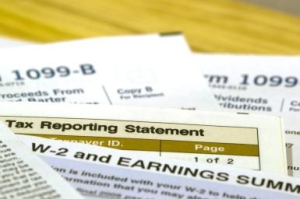How Late Can You File A Tax Return?

April 15th is the annual deadline for most people to file their federal income tax return and pay any taxes they owe. But what happens if you can’t file on time? What happens if you file your return after the due date? If you were owed a refund, can you still receive it? This post will answer all of the above questions and then some.
Annual Due Date For Filing Return. Everyone is pretty familiar with the date of April 15th here in the US. This is “Tax Day” or the date that most people are required to file their Form 1040 U.S. Individual Income Tax Return. While this date may move slightly from year to year (due to local holidays) note that it is actually mandated by law. 26 U.S. Code § 6072 actually stipulates the due dates for individual and corporate tax returns.
Can’t File By Due Date? By law, the IRS may assess penalties to taxpayers for both failing to file a tax return and for failing to pay taxes they owe by the deadline. Now, one way to avoid the late filing penalties is to file an extension. Filing Form 4868 Application for Automatic Extension of Time To File U.S. Individual Income Tax Return, will give you an extra 6 months for you to file your return and have it be considered on time. Now, if you owe money, that is still due on April 15th. If you fail to make a payment by then, you will still be subject to the late payment penalties noted above.
Filing After Extension Due Date? If you file after the extended due date, then one of two scenarios occurs:
- You had a balance due and are now subject to the late filing and late payment penalties
- You have a refund and are NOT subject to any penalties, but the clock is now ticking for you to claim your refund or lose it.
3 Year Deadline To Claim Refund 26 U.S. Code § 6511 outlines that a taxpayer basically has 3 years from the time the return was filed or 2 years from the time the tax was paid, whichever of such periods expires the later, to claim their refund. So while you won’t pay any penalties for late filing a return in which you were owed a refund, know that you generally only have 3 years to claim it. What happens if you don’t file by then? Well, that refund becomes the property of the US Government and you lose it forever!
What If You Don’t File Voluntarily If you fail to file file a tax return, the IRS may file a substitute return for you. This return might not give you credit for deductions and exemptions you may be entitled to receive. The return the IRS prepares for you will lead to a tax bill, which if unpaid, will trigger the collection process. This can include such actions as a levy on your wages or bank account or the filing of a notice of federal tax lien.
Need Help Filing Your Past Due Return? For filing help, you can call the IRS at 1-800-829-1040 They can help you obtain wage and income information to help prepare a past due return. If you don’t want to speak to anyone at the IRS, you can obtain your transcripts electronically by using the IRS’ Get Transcript tool to request a return or account transcript. You can also get tax forms and instructions to file your past due return by calling 1-800-Tax-Form (1-800-829-3676).
Now, if you would rather avoid all of the above and have a service file your tax returns for you, we’d be more than happy to help. Just go to this page to get started and you can be filed in as little as 24 hours!

